
The convenience of online shopping has simplified our lives, yet the digital landscape has also paved the way for a surge in scams. Recent reports highlight an alarming trend of UPS-related scams, leaving consumers vulnerable. As summer unfolds, media outlets caution against cunning tactics involving fake UPS notifications. From demanding shipping proof before payment to deceptive text messages, these scams are growing in sophistication. Recognizing red flags is crucial: double-check sender numbers, avoid suspicious links, and be wary of misspellings or odd grammar. Particularly targeted are seniors, making vigilance imperative. Read on to discover the red flags to watch for.

According to ABC 15 Arizona, a common UPS scam involves people sending expensive items to supposed buyers, but the buyer says they want proof the item was shipped before they pay. The merchandise ships, but the payment never comes. Never sell anything in this manner. To further protect yourself, sell items on sites like eBay that offer seller protection.

You may receive a text message saying there’s problem with your UPS delivery. The text might say there was a missed delivery or a delivery that needs to be rescheduled or it says there is a small amount owed before delivery can happen.

The text message includes a link, which the scammer wants you to click. It may install a virus on your device that captures credit card data which can be reused.
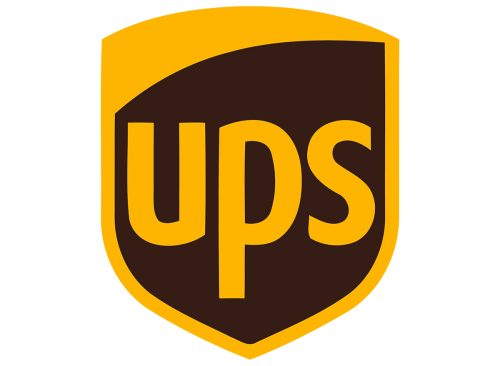
In the U.S., UPS will only send texts from MYUPS (69877). Any texts sent from another number are suspect.
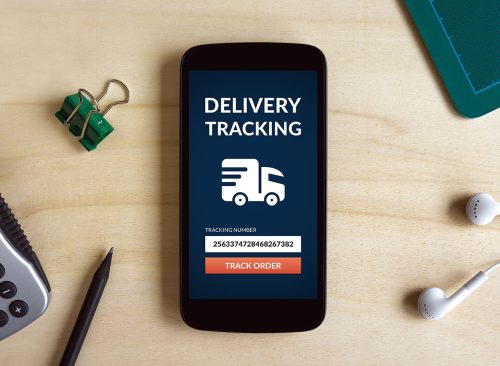
If the text comes with a tracking number, don’t click through. Copy-and-paste the number into the tracking window on UPS.com to see if it’s legitimate.

As with many scams, seniors are a prime target for the UPS scam. If you’re in that demographic, be especially cautious about unsolicited text messages.
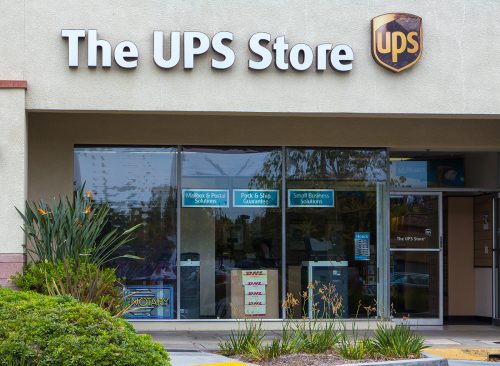
An easy way to check out any UPS-related texts is to call a local UPS Store. An employee can answer any questions you might have and warn you against any messages that might come from scammers.
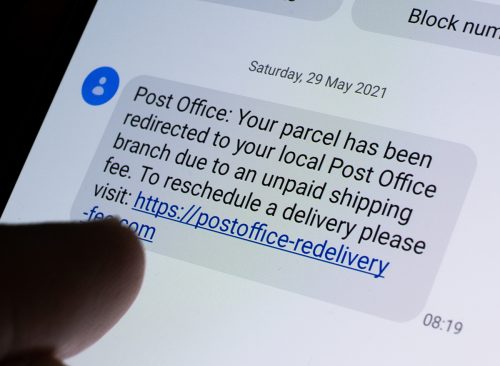
In June, the FTC warned that “fake package delivery problems” were one of the top five scams of 2022. “Texts pretending to be from the U.S. Postal Service, FedEx, and UPS say there’s a problem with a delivery,” the agency said. “They link to a website that looks real – but isn’t.”
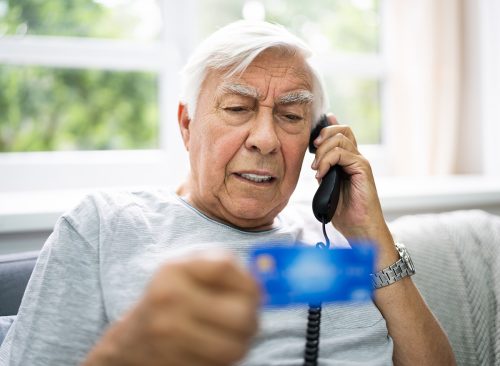
“If you paid a small ‘redelivery fee,’ which many people reported, that was a trick to get your credit card number,” the FTC said. “People also reported giving these scammers their personal information, including Social Security numbers.”

Watch out for misspellings in the website or email addresses. A message coming from a scammer pretending to be FedEx might spell the website fedx.com or fed-ex.com. The message might also include grammatical errors, exclamation points, excessive capitalization, or just not look professional.

Experts recommend keeping track of your Amazon orders, so you’ll be more likely to recognize a bogus message about a shipment that isn’t yours. Legitimate Amazon websites have a dot before “amazon.com.” They don’t send emails with links to an IP address such as http://123.456.789.123/amazon.com, which is likely a phishing attempt, USA Today reports.














